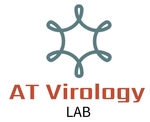Abstract
The emergence of the coronavirus disease 2019 (COVID-19) pandemic prompted researchers to develop portable biosensing platforms, anticipating to detect the analyte in a label-free, direct, and simple manner, for deploying on site to prevent the spread of the infectious disease. Herein, we developed a facile wavelength-based SPR sensor built with the aid of a 3D printing technology and synthesized air-stable NIR-emitting perovskite nanocomposites as the light source. The simple synthesis processes for the perovskite quantum dots enabled low-cost and large-area production and good emission stability. The integration of the two technologies enabled the proposed SPR sensor to exhibit the characteristics of lightweight, compactness, and being without a plug, just fitting the requirements of on-site detection. Experimentally, the detection limit of the proposed NIR SPR biosensor for refractive index change reached the 10-6 RIU level, comparable with that of state-of-the-art portable SPR sensors. In addition, the bio-applicability of the platform was validated by incorporating a homemade high-affinity polyclonal antibody toward the SARS-CoV-2 spike protein. The results demonstrated that the proposed system was capable of discriminating between clinical swab samples collected from COVID-19 patients and healthy subjects because the used polyclonal antibody exhibited high specificity against SARS-CoV-2. Most importantly, the whole measurement process not only took less than 15 min but also needed no complex procedures or multiple reagents. We believe that the findings disclosed in this work can open an avenue in the field of on-site detection for highly pathogenic viruses.
